Aspirin Dispersable 75mg Tablets, 28 Tablets
Can also be used after bypass surgery.
Can help prevent further heart attacks and strokes
Suitable for Adults and Children over 16 years
Active Ingredient: Aspirin 75mg
Aspirin Dispersable 75mg Tablets are principally used to prevent blood clots forming following a heart attack or stroke or to help prevent heart attacks and strokes in patients who have previously suffered from these conditions
Original price was: £1.00.£0.79Current price is: £0.79.
CompareCompare- Description
- Additional Information
- Brand
- How To Use
- Product Details
- Side Effects
- Reviews (0)
- Questions & Answers (1)
Aspirin Dispersable 75mg Tablets, 28 Tablets
What Aspirin Dispersable 75mg Tablets is and what it is used for
Aspirin Dispersable 75mg Tablets belongs to a group of medicines called antiplatelet agents that help prevent your blood cells from sticking together and forming a blood clot.
Aspirin Dispersable 75mg Tablets are principally used to prevent blood clots from forming following a heart attack or stroke or to help prevent heart attacks and strokes in patients who have previously suffered from these conditions.
What is low dose Aspirin?
Aspirin 75mg Tablets is a daily low-dose aspirin is a blood thinning medicine. Aspirin is also known as acetylsalicylic acid.
Low-dose aspirin helps to prevent heart attacks and strokes in people at high risk of them.
Your doctor may suggest that you take a daily low dose if you have had a stroke or a heart attack to help stop you having another one.
Or, if you’re at high risk of heart attack – for example, if you have had heart surgery or if you have chest pain caused by heart disease (angina).
Only take daily low-dose aspirin if your doctor recommends it.
Low-dose aspirin comes as tablets.
Children are sometimes treated with low-dose aspirin after heart surgery or to treat a rare illness called Kawasaki disease. Children should only take low-dose aspirin if their doctor prescribes it.
Taking low-dose aspirin to prevent heart attacks and strokes is not the same as taking aspirin as a painkiller
- Daily low-dose aspirin makes the blood less sticky and helps to prevent heart attacks and stroke.
- It’s usual to take a dose of 75mg once a day. Sometimes doses may be higher.
- It’s best to take low-dose aspirin with food so it doesn’t upset your stomach.
- Taking low-dose aspirin isn’t safe for everyone. Only take low-dose aspirin if your doctor recommends it.
- Low-dose aspirin is also called by the brand names Caprin, Danamep, Micropirin and Nu-seals.
Most people aged 16 or over can safely take low-dose aspirin if their doctor recommends it.
Low-dose aspirin isn’t suitable for certain people.
It’s sometimes called baby aspirin because of the small dose, but it’s not safe for children.
Never give aspirin to a child younger than 16, unless their doctor prescribes it.
There’s a possible link between aspirin and Reye’s syndrome in children.
Aspirin Dispersable 75mg Tablets Reviews
After using Aspirin 75mg Tablets, it’s helpful to let others know about your experience. Reviews of an item help other users know that medicines received have helped the condition it is claimed for, how well the treatment worked or any issues to be aware of. We invite our users to leave a review of both their treatment and of the service provided. Click on the reviews tab to see if there has been feedback on this item.
Price of Aspirin Dispersable 75mg Tablets in UK
Aspirin Dispersable 75mg Tablets is available on Dock Pharmacy Essex UK, UK Online Pharmacy.
| Brand | |
|---|---|
Brand
Aspirin
How To Use
How to take Aspirin 75mg Tablets
- Always take this medicine exactly as described in this leaflet or as your doctor or pharmacist has told you. Check with your doctor or pharmacist if you are not sure.
- This medicine should be swallowed whole with a drink of water, do not cut, crush or chew the tablets.
- Do not take any medications for indigestion either immediately before or after taking this medicine.
Dosage
Adults, elderly and children over 16 years: The usual dose for long term use is one to two tablets daily. In some circumstances a higher dose may be appropriate, especially in the short term, and up to 300mg a day may be used on the advice of a doctor. Caution is required in elderly patients who are more prone to adverse events. Treatment should be reviewed at regular intervals. Patients should consult their doctor before starting long term aspirin treatment in order to prevent a further heart attack or stroke.
Do not give to children aged under 16 years unless on the advice of doctor. There is a possible association between aspirin and Reye’s syndrome when given to children. Reye’s syndrome is a very rare disease, which can be fatal.
Do not take more than the recommended dose.
If you take more Aspirin 75mg Gastro-Resistant Tablets than you should
It is important to keep to the dose on the label or follow the instructions above. Taking more than this could make you ill. If an overdose is taken, DO NOT DELAY, ask your doctor what to do or contact your nearest accident and emergency department.
Common symptoms of overdose include: vomiting, dehydration, ringing in the ears, vertigo (dizziness), deafness, sweating, warm arms, legs or hands with racing pulse, rapid and deep breathing (hyperventilation) and increased breathing rate.
If you forget to take Aspirin 75mg Gastro-Resistant Tablets
If you miss a dose, wait and take your next dose at the usual time.
Do not take a double dose to make up for a forgotten dose.
If you have any further questions on the use of this medicine, ask your doctor or pharmacist.
Product Details
Product Information
What you need to know before you take Aspirin 75mg Gastro-Resistant Tablets
Do not take Aspirin 75mg Tablets:
- if you are allergic to aspirin or any of the other ingredients of this medicine (listed in section 6)
- if you have ever had a bad reaction to aspirin or any other non-steroidal anti-inflammatory medicines (you have ever had asthma, swelling of the lips or face, itchy skin or runny nose after taking them)
- if you have, or ever had, an ulcer in your stomach or intestine
- if you are under 16 years old, unless your doctor tells you to
- if you have, or ever had, a bleed in your stomach or intestines (you may have been sick and it contained blood or dark particles that looked like coffee grounds and/or passed blood in your stools or passed black tarry stools)
- if you have had other types of bleeding like a stroke
- if you have a blood clotting disorder (e.g. haemophilia or thrombocytopenia) or are taking medicines to thin your blood
- if you have gout
- if you have severe kidney or liver problems
- if you are in your last 3 months of pregnancy; you must not use higher doses than 100mg per day (see section “Pregnancy and breast-feeding”)
- if you are taking a medicine called methotrexate (e.g. for cancer or rheumatoid arthritis) in doses higher than 15mg per week
Warnings and precautions
Talk to your doctor or pharmacist before taking Aspirin 75mg Gastro-Resistant Tablets:
- if you are asthmatic, have hay fever, nasal polyps or other chronic respiratory diseases; aspirin may induce asthma attack
- if you have other kidney, liver or heart problems
- if you have high blood pressure (your doctor may want to monitor you closely)
- if you are dehydrated
- if you have a condition called glucose-6-phosphate dehydrogenase deficiency
- if you are elderly (your doctor may want to monitor you closely)
- if you have or have ever had problems with your stomach or small intestine
- if you have heavy menstrual periods
You must immediately seek medical advice, if your symptoms get worse or if you experience severe or unexpected side effects e.g. unusual bleeding symptoms, serious skin reactions or any other sign of serious allergy (see section “Possible side effects”).
Inform your doctor if you are planning to have an operation (even a minor one, such as tooth extraction) since Aspirin is blood-thinning there may be an increased risk of bleeding.
You should take care not to become dehydrated (you may feel thirsty with a dry mouth) since the use of Aspirin at the same time may result in deterioration of kidney function.
This medicinal product is not suitable as a pain killer or fever reducer.
If any of the above applies to you, or if you are not sure, speak to your doctor or pharmacist.
Children and adolescents
Aspirin may cause Reye’s syndrome when given to children.
Reye’s syndrome is a very rare disease which affects the brain and liver and can be life threatening. For this reason, Aspirin tablets should not be given to children aged under 16 years, unless on the advice of a doctor.
Other medicines and Aspirin 75mg Gastro-Resistant Tablets
Tell your doctor or pharmacist if you are taking, have recently taken or might take any other medicines, particularly the following:
- Warfarin or other blood thinners
- Medicines for depression
- Methotrexate (for cancer, skin problems, rheumatic problems, Crohn’s disease)
- Ciclosporin or tacrolimus (given after transplant surgery, or psoriasis or rheumatism)
- Mifepristone (for termination of pregnancy) – do not take this medicine for 8 to 12 days after taking mifepristone
- Other non-steroidal anti-inflammatory medicines, like ibuprofen (to relieve pain, reduce swollen joints, muscles and ligaments)
- Corticosteroids like prednisolone (used for many conditions such as pain, swelling, allergy, asthma, rheumatism and skin problems)
- Phenytoin and sodium valproate (for epilepsy)
- Medicines for diabetes, such as glibenclamide, glipizide (sulphonylureas) or insulin
- Medicines used to treat high blood pressure like ACE inhibitors (e.g. ramipril, captopril)
- Water tablets (diuretics e.g. spironolactone and acetazolamide)
- Metoclopramide (for feeling sick or being sick)
- Probenecid and sulfinpyrazone (for gout)
- Lithium (for severe mental problems)
- Medicines for heart problems (e.g. digoxin)
- Sulphonamide antibiotics (e.g. co-trimoxazole)
- Acetazolamide (for glaucoma)
- Zafirlukast (for asthma)
- Antacids (for indigestion) or adsorbents (e.g. kaolin for diarrhoea)
Aspirin may affect the results of thyroid function tests. Tell your doctor or nurse if you are taking these tablets.
Taking this medicine with alcohol
Do NOT drink alcohol whilst taking this medicine. Drinking alcohol may possibly increase the risk of gastrointestinal bleeding and prolong bleeding time.
Pregnancy and breast-feeding
- Ask your doctor or pharmacist for advice before taking any medicine.
- Pregnant women should not take aspirin during pregnancy unless advised by their doctor.
- You should not take Aspirin tablets if you are in the last 3 months of pregnancy, unless you are advised to do so by your doctor and then the daily dose should not exceed 100mg (see section “Do not take this medicine”). Regular or high doses of this medicinal product during late pregnancy can cause serious complications in the mother or baby.
- Breast-feeding women should not take Aspirin unless advised by their doctor.
Driving and using machines
These tablets do not usually affect the ability to drive or operate machinery.
Aspirin 75mg Gastro-Resistant Tablets contains lactose
If you have been told by your doctor that you have an intolerance to some sugars, contact your doctor before taking this medicinal product.
Side Effects
Possible side effects Aspirin 75mg Tablets
Like all medicines, this medicine can cause side effects, although not everybody gets them.
STOP TAKING this medicine and tell your doctor immediately if you suffer from any of the following:
- Sudden wheezing, swelling of your lips, face or body, rash, fainting or difficulties swallowing (severe allergic reaction), shock
- Reddening of the skin with blisters or peeling and may be associated with a high fever and joint pains. This could be erythema multiforme, Stevens -Johnson syndrome or Lyell’s syndrome
- Unusual bleeding, such as coughing up blood, blood in your vomit or urine, or a stroke due to bleeding in brain or black stools
Other side effects
Common: may affect up to 1 in 10 people
- Indigestion
- Increased tendency for bleeding
Uncommon: may affect up to 1 in 100 people
- Hives
- Runny nose
- Breathing difficulty
Rare: may affect up to 1 in 1,000 people
- Severe bleeding in the stomach or intestines, brain haemorrhage; altered number of blood cells
- Inflammation of the stomach lining
- Nausea and vomiting
- Cramps in the lower respiratory tract, asthma attack
- Inflammation in the blood vessels
- Abnormal heavy or prolonged menstrual periods
Not known: frequency cannot be estimated from the available data
- Ringing in your ears (tinnitus) or reduced hearing ability
- Headache
- Vertigo
- Ulcers in stomach or small intestine and perforation
- Diarrhoea
- Increased bleeding time, e.g. when you have a nose bleed, bleeding gums (if bleeding is severe or lasts for a long time, talk to your doctor straight away)
- Impaired kidney function
- Salt and water retention
- Impaired liver function
- High level of uric acid in the blood
- Anaemia (a reduction in the number of red blood cells which can make you look pale and feel tired) may occur due to bleeding
- Kidney stones (sharp stabbing pains in the stomach or back, with blood in the urine)
Reporting of side effects
If you get any side effects, talk to your doctor or pharmacist. This includes any possible side effects not listed in this leaflet. You can also report side effects directly via Yellow Card Scheme Website: www.mhra.gov.uk/yellowcard or search for MHRA Yellow card in the Google Play or Apple App Store. By reporting side effects you can help provide more information on the safety of this medicine.
Only logged in customers who have purchased this product may leave a review.
Questions and answers of the customers
Other Products From This Seller
£69.50 – £79.95
Griseofulvin Oral Suspension, 200ml Griseofulvin Oral Suspension – Reliable Solution for Fungal Infections Griseofulvin Oral Suspension is a trusted antifungal medication designed to treat infections caused by fungi affecting the hair, skin, scalp, groin, feet, and nails, including ringworm, athlete’s foot, and jock itch. This suspension works by targeting and killing fungi, incorporating itself into […]
Learn More£69.50 – £79.95
- Availability: in stock
Griseofulvin 500mg Tablets, 100 Tablets Griseofulvin 500mg Tablets – Powerful Antifungal Treatment for Fungal Skin Infections Griseofulvin 500mg Tablets are a trusted solution for treating fungal infections affecting the skin, hair, and nails. This antifungal medication works by targeting the fungi responsible for conditions like ringworm, athlete’s foot, jock itch, and nail infections. Griseofulvin incorporates […]
Learn More£174.50
- Availability: in stock
Original price was: £196.50.£189.50Current price is: £189.50.
Fludrocortisone Acetate Solution 0.1mg/ml, 50ml Fludrocortisone Acetate Solution 0.1mg/ml, 50ml is a trusted liquid corticosteroid for treating adrenal insufficiency and electrolyte imbalances in humans and pets. This versatile solution is ideal for managing Addison’s disease and other adrenal health concerns, particularly in cats and dogs. Key Benefits For Humans: Effective treatment for adrenal insufficiency and […]
Learn MoreOriginal price was: £196.50.£189.50Current price is: £189.50.
- Availability: in stock
Fluoxetine Dispersible Tablets 20mg, 28 Tablets Fluoxetine Dispersible Tablets 20mg, 28 Tablets are a highly effective treatment for anxiety, depression, and behavioral challenges in both humans and pets. Whether you’re managing emotional health or addressing behavioral concerns in your furry friends, these tablets offer reliable and trusted relief. Why Choose Fluoxetine Dispersible Tablets? Versatile Treatment […]
Learn More£5.50
- Availability: in stock
Original price was: £34.99.£24.95Current price is: £24.95.
Wahl Extreme Grip Beard Trimmer Precision Grooming with Comfort Grip and Adjustable Cutting Lengths Take Control of Your Grooming with the Wahl Extreme Grip Beard Trimmer Transform your grooming routine with the Wahl Extreme Grip Beard Trimmer, designed for precision, comfort, and versatility. Whether you’re sculpting a sharp beard line, maintaining stubble, or styling longer […]
Learn MoreOriginal price was: £34.99.£24.95Current price is: £24.95.
- Availability: in stock
Original price was: £23.99.£17.95Current price is: £17.95.
WAHL Vogue Corded Hair Clipper for Men Professional Precision with Adjustable Taper Lever and High-Carbon Steel Blades Transform Your Grooming Routine with the WAHL Vogue Corded Hair Clipper for Men Elevate your grooming experience with the WAHL Vogue Corded Hair Clipper, a professional-grade grooming tool designed for men who value precision and performance. Whether you’re […]
Learn MoreOriginal price was: £23.99.£17.95Current price is: £17.95.
- Availability: in stock
Original price was: £30.00.£8.95Current price is: £8.95.
Wahl Peaky Blinders Beard Trimmer Gift Set Limited Edition Cordless Grooming Kit for Men Join the ranks of the Peaky Blinders with the Wahl Peaky Blinders Beard Trimmer Gift Set. This exclusive collaboration between Wahl and the iconic TV series offers a comprehensive grooming solution for the modern gentleman. Key Features: Rechargeable Cordless Trimmer: Equipped […]
Learn MoreOriginal price was: £30.00.£8.95Current price is: £8.95.
- Availability: in stock
Original price was: £54.63.£39.95Current price is: £39.95.
OMRON RS2 Wrist Blood Pressure Monitor Compact and Accurate BP Monitoring The OMRON RS2 Wrist Blood Pressure Monitor is a compact and user-friendly device designed for quick and accurate blood pressure and pulse rate measurements. Utilizing the oscillometric method, it ensures reliable readings with minimal user input. Key Features: Automatic Inflation: The device inflates the […]
Learn MoreOriginal price was: £54.63.£39.95Current price is: £39.95.
- Availability: in stock
Original price was: £69.99.£59.99Current price is: £59.99.
Omron M4 Intelli IT Blood Pressure Monitor Bluetooth-Enabled Upper Arm BP Monitor with Intelli Wrap Cuff The Omron M4 Intelli IT Blood Pressure Monitor is a clinically validated device designed for easy and accurate blood pressure monitoring at home. With Bluetooth connectivity, it seamlessly syncs your readings to the Omron Connect app, allowing you to […]
Learn MoreOriginal price was: £69.99.£59.99Current price is: £59.99.
- Availability: in stock
Original price was: £39.99.£33.95Current price is: £33.95.
Omron M2+ Upper Arm Blood Pressure Monitor The Omron M2+ Upper Arm Blood Pressure Monitor is a fully automatic device designed to provide quick and accurate blood pressure and pulse rate measurements. Utilizing the oscillometric method, it ensures reliable readings with minimal user input. Key Features: IntelliSense Technology: Automatically inflates the cuff to the ideal […]
Learn MoreOriginal price was: £39.99.£33.95Current price is: £33.95.
- Availability: in stock


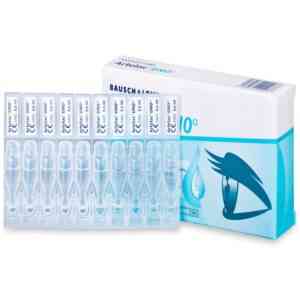
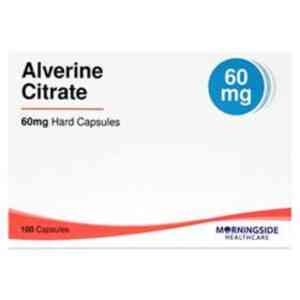
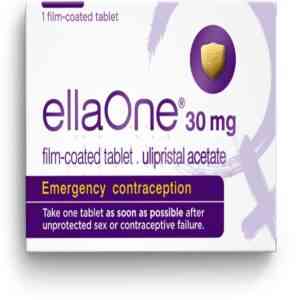
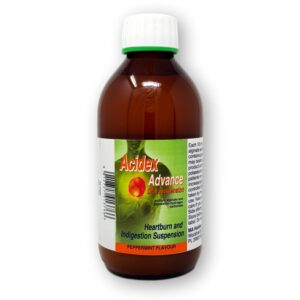

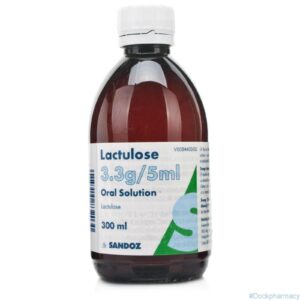










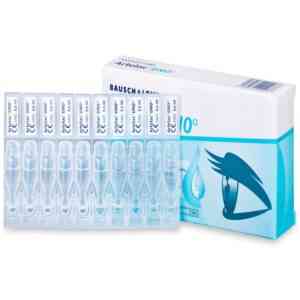

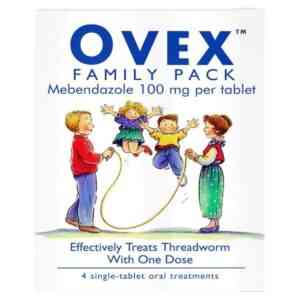

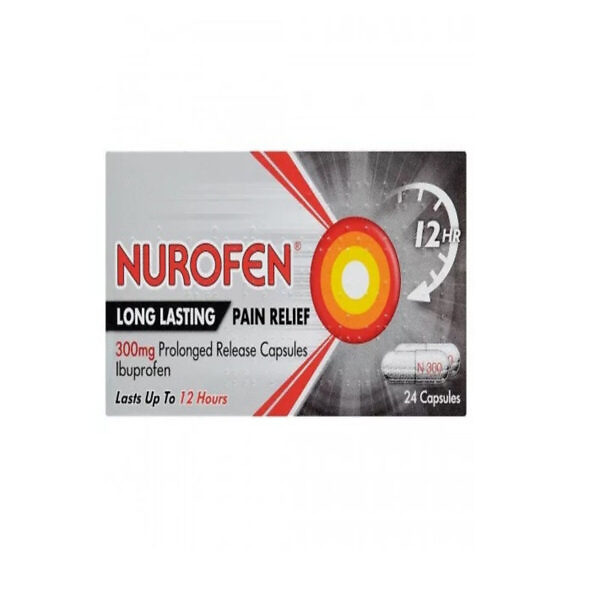

Reviews
There are no reviews yet